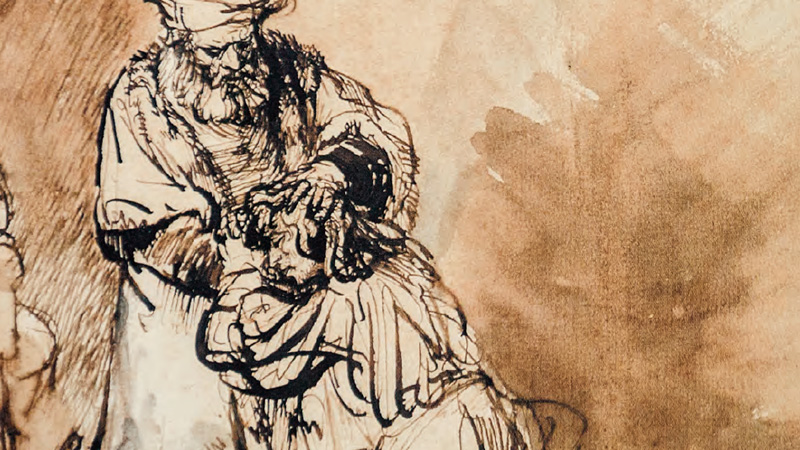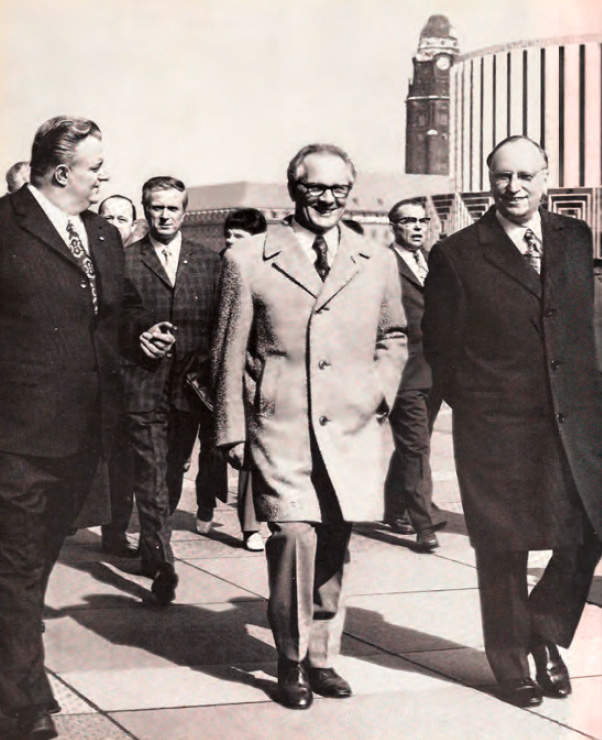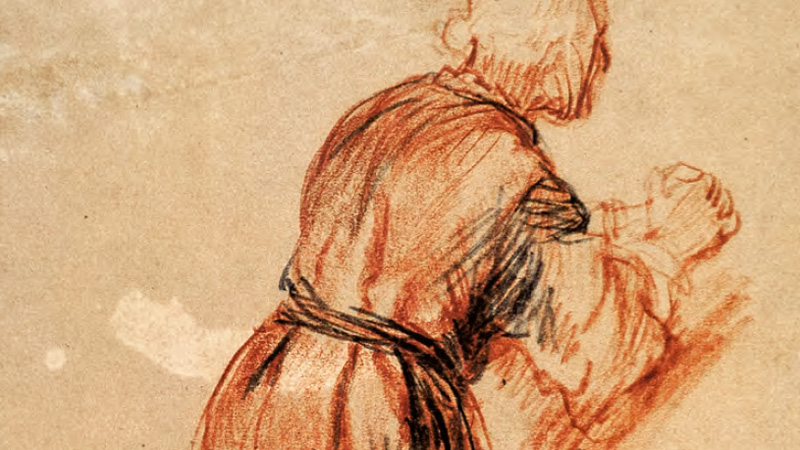One cannot forgive a fault, because a fault is a thing, not a person.
The French usually say “pardonner une faute” (literally: forgive a fault). This is not truly proper. One cannot forgive a fault, because a fault is a thing, not a person. In actual fact, forgiveness is bestowed upon persons who have done something wrong.
What to forgive?
What is to be or do wrong? To begin with, let me start by sketching a typology of wrongness:
- ‘Being or doing wrong’ refers, on one hand, to the fact that something is wrong, i.e. not working well. Speaking pedantically, if you want, one will talk of a dysfunction. Thus, if something should work unhindered yet it shows difficulties in doing so, it is precisely the well-functioning of a system, be it a mechanism (breakdown) or an organism (illness or disease), and the mechanic or physician should identify what is wrong and then fix it.
- ‘Being or doing wrong’ may also refer to the violation of a civil law. I did not pay my taxes. Or I passed a red light. The judge or policeman will apply the law by means of punishing me (that is, the culpable one): I will be fined; I will have to assume the consequences of my infraction; and could end up in jail.
- ‘Being or doing wrong’ may refer to a transgression of the moral law (its not being respected). I lied; I have cheated in a card game. The authority will be recognized again by an act of regret: I should not have done it and I regret it. • ‘Being or doing wrong’ may finally refer to wronging someone. I slapped my neighbor; I called him all kinds of names; I stole from him. This wrongdoing shall be overcome when the one who committed the act has apologised and (if possible) made reparation.
These aspects do not coincide, nor do they generate from one another.
Thus, due reparation will not vary according whether the harm done is or is not penalized by law. For example, making restitution for what I have stolen will be the same act regardless of whether the act was done voluntarily or under coercion.
Punishment is not necessarily accompanied by regret. A wrongdoer bored in his cell may lament allowing himself to be caught, but more frequently he will blame what happened on his bad luck or on his accomplices, rather than feeling regret for the wrong he did.
Regret does not free me from the obligation to make reparation for the harm done; on the contrary, it obliges me to it. Regret without reparation is mere hypocrisy. Yet even when regret is accompanied with reparation, the latter does not exempt me from punishment.
In which cases can one speak of forgiveness?
In the first case, the one of dysfunction, forgiveness simply has no room at all. It would be absurd to forgive one’s own car for breaking down, or one’s own heart for a heart attack.
In the second case, that is, the transgression of a civil law, there will be rough similarities to forgiveness, namely: amnesty or pardon. Yet it should be asked whether these, being roughly similar to forgiveness, do not follow a different logic, foreign to civil law: for example, a purely technical prudential rule or a calculation of psychological politics. Thus, the state may shut its eyes before certain fiscal frauds, because investigating them and paying the competent functionaries to do so would cost more money than could be regained. Similarly, in the case of pardon: this is a remnant of royal privilege based on the idea that the latter is of divine origin; in which case, the pardon, being an anachronism, will be protested, as so did the young Marx.1 In both cases, there is an access to something akin to forgiveness only by being separated from civil law’s proper sphere, either by getting out of it from below or transcending it from above.
 The Return of the Prodigal Son. Rembrandt (Haarlem, Tyeler Museums)
The Return of the Prodigal Son. Rembrandt (Haarlem, Tyeler Museums)
In the third case, that of not respecting the moral law, the law cannot apply any punishment to those who transgress it, nor can it forgive them. It is purely a norm by reference to which it becomes possible to measure the activities of men; yet it remains in itself indifferent to the latter’s attitude towards it. As St. Paul says, the law does not provide but the consciousness of sin (Rm 3:20); it does not help avoiding sin. For morality, faults are transgressions, nothing more: a limit is trespassed; a rule is not respected; a code or a law is violated. The limit, the rule, the code, or the law cannot forgive. As the French say, “cela ne pardonne pas” (literally: that does not forgive). Once harm is done, “what is done is done,” and the fault remains with the culpable. Only in the fourth case may one properly speak of forgiveness.
From what has been said, I conclude: Forgiveness is essentially personal. The person is the subject and object of forgiveness. There is always one person forgiving another. In the first case (breakdown or illness), there is no forgiveness because there is no person whom one may forgive. In the second and third cases (transgression of a law), there is no one who may forgive.
Sin
The notion of person is the basis for an understanding of the meaning of the term “sin.”2
There are a thousand things in the world, in society, in us, that are “not going well.” I have given a short list at the beginning. All this can be narrated, described, examined, or analyzed, as much as one wants, maybe even explained, but sins are not to be found there. Economists, politicians, and physicians speak of dysfunctions. Psychologists speak of disturbances or obsessions. There is certainly much truth in their diagnoses, and much good will in the treatments they prescribe.
However, in all this I am never responsible. We always accuse someone or something else: society; my memories in kindergarten; my miserable social origin or, on the contrary, my having been spoiled too much; the aggressiveness to be found in the “reptilian brain”; etc. Sin begins when I recognize myself as responsible and as needing forgiveness.
Certainly, most of us have never committed a crime, and even less so, ever organized a mass-killing (genocide), yet that is not the point. A fault is measured according to the occasion. It is not meritorious to avoid that which we do not have the chance to commit. A pagan thinker has already stressed this: Epictetus, the stoic. One of his students makes a mistake in a logic exercise. His master reproaches him vehemently. The student, irritated, replies: “Calm down! I haven’t killed my father!” Epictetus answers: “Did you even have the chance to? You had an opportunity not to make a mistake. You have wasted it. Who can tell me that if you had had the chance to commit parricide, you would not have done it”?3
Thus, from a certain standpoint, all faults are on a par. No moral system is therefore stricter than any other, like that of Christianity, for example. Common morality is the strict one; for example, the morality of philosophers, such as Epictetus, whom I have just referred to. And it is necessarily so. In fact, what morality asks for is nothing but perfection. Certainly, Aristotle defines virtue as a mean between two extremes;4 yet he demands that we be virtuous, not moderately, but supremely. It is not possible to be too virtuous, too much as one ought to be. The “right mean” is indeed a height.
Let me observe the following: sin, of which Christianity speaks, is not a fault worse than others; it is rather a fault seen from a certain standpoint, that of forgiveness. Christianity does not make up new faults; it focuses on them from the viewpoint of forgiveness. Sometimes the impression emerges that Christians speak only of sin; that this obsesses them and they see it everywhere. Now, what they actually speak of is the forgiveness of sins. The Creed says: we believe in “the forgiveness of sins.” It is not that Christians believe in sin; they believe in God, who forgives sins.
Christianity does not blame people; on the contrary, it liberates them from the feeling of guilt, for once forgiven, one may forget, and above all, start anew. Now, sin is precisely what is forgiven. Even more, this is its definition. The proverb may be taken literally: “there is mercy for every sin.” God always forgives.
Whom to forgive?
I am waiting for the objection: this is somehow too easy! Actually, it is here where the difficulty begins. God always forgives; yet something else is also required, namely: that we accept to be forgiven.
In order to be forgiven, I must recognize the need to be forgiven; I must recognize that I have sinned, and from this I work out the consequences.
 «The most horrifying thing about people who have been accomplices of tyrannical regimes is their having a clean conscience. I particularly remember a documentary from a German television network I saw two years ago. The interviewers questioned some generals who had directed the political police in Eastern Germany (Stasi) and were now enjoying themselves with their pension money. In their conversation, I could not find a single trace of remorse...» Erich Honecker along with members of the Politbüro of the Communist Party of the GRD.
«The most horrifying thing about people who have been accomplices of tyrannical regimes is their having a clean conscience. I particularly remember a documentary from a German television network I saw two years ago. The interviewers questioned some generals who had directed the political police in Eastern Germany (Stasi) and were now enjoying themselves with their pension money. In their conversation, I could not find a single trace of remorse...» Erich Honecker along with members of the Politbüro of the Communist Party of the GRD.
I am not asked to share the sort of diffuse culpability that some intend to instill in us. Such sensibility can recur in a formula Dostoyevsky puts in the mouth of the starets Zosima: “Each one of us is certainly to blame (виновен) for all and for everything on earth, and not only on account of the universal fault of the world, but also each one universally for all people and for every man on this earth.”5 This culpability poisons us, paralyzes us till we are impeded from making any reparation. On the contrary, each one of us should recognize what he himself has done; what other did is their problem.
We cannot forgive offenses done to others. This would be easy to the point of being odious. Christ asks us to offer the other cheek when we are slapped (Mt 5:39). Moreover, it is required that it be our own other cheek. If another person is slapped, we have no right to recommend offering the other cheek; it would indeed be quite ignoble. On the contrary, it is our obligation to intervene. And we also have the obligation to stop the aggressor from slapping other people. It is the role of the state, and is not a matter of pretending to substitute it by a vague “angelicalism.”
We cannot forgive ourselves. Sometimes people say, frequently with a negative connotation, “I will never forgive myself for this.” It is no more than a manner of expression. Forgiveness must be asked for, and it can be given to us by our neighbor. One cannot forgive oneself, or consider oneself forgiven by God, based on one’s own judgment regarding oneself. A disposition to forgive oneself, that is, not to realize that one has committed a fault, is rather a negative sign.
The most horrifying thing about people who have been accomplices of tyrannical regimes is their having a clean conscience. I particularly remember a documentary from a German television network I saw two years ago. The interviewers questioned some generals who had directed the political police in Eastern Germany (Stasi) and were now enjoying themselves with their pension money. In their conversation, I could not find a single trace of remorse...
How can we know if someone accepts forgiveness? It is impossible to read other people’s minds, but there are probable signs. If someone says he regrets what he has done, yet refuses to make reparations, how can we believe he is sincere? If he refuses to restore what he stole, if he rejects punishment for his felonies, how can we not suspect that he wants to get out of trouble with minimum damage to himself? In the Gospel, Zacchaeus, the tax collector, restores the money which he misappropriated and even accepts to pay a fine (Lk 19:8). These very concrete elements are constituent parts of forgiveness.
From what has been said the following can be derived: protecting a criminal out of compassion does not amount to serving him, even when acting out of compassion. On the contrary, it hurts him; it hinders him from truly regretting his fault, thus expiating and repairing it. Socrates’ paradox should be taken seriously: being punished, when done justly, is better than escaping punishment.6
There was a case of this kind in France in the 1990s. Paul Touvier became a member of the French Militia during World War II, an organization that collaborated with the Nazi occupation. He had an important role in the region of Lyon, where he was an accomplice to various murders. Being wanted during the Liberation, he took refuge in religious houses and convents on many occasions. The priests and monks that took him justified their actions by pointing out that he regretted what he had done.
I am in no position to judge the motives of the priests and religious who hid him. Nor can I judge the quality of that dialogue, and I certainly hope it was sincere. I must confess, however, that I doubt it was, for I ask myself: why did he not turn himself in? And why did the priests who confessed him not ask him to do that?
True compassion should make the moral progress of the one receiving it possible. A physician does not try to free his patients from anything disturbing them. Of course, he avoids causing useless pain, but what he aims at is the patient’s healing. Let’s use an innocuous example: Who is a smoker’s best friend? Who wishes him well? It is not the one telling him tobacco is not dangerous, but the one who warns him about the risks he is taking, about the higher chances getting cancer.
Who forgives?
Only persons can be forgiven, and only persons can forgive. An impersonal institution cannot forgive.
The state cannot forgive, not because it is evil and vindictive, but simply because it is not a person. That is why felonies committed against it do not prescribe. As the French saying goes: “Qui l’oie du roi a plumée cent ans après en rend la plume” (literally: he who plucked the king’s goose returns the feather after a hundred years). If the state arrogates the right to forgive, it does so only insofar as it preserves a trace of its supra human origin (be this real or not). Thus, the right to pardon which presidents have is a remnant of kings’ power, which in itself is a trace of the power of God.
God is above all the one who forgives, for He is the most personal being there is, more personal than us human beings, who are also things. He is personal to the point of being nothing but personal.7 That is why He is the one who can forgive.
It is not that He would forgive for other people’s sake, forgive the harms done to them, for it could be said: He has no difficulty in forgiving; it is no burden to him, since He is not the one harmed.
In a certain way, sin offends God. In our act of contrition we say: “My Lord, I regret having offended you...” How is this possible? If God is God, we cannot do anything to Him, i.e. we cannot hurt or disturb him, as we can with man.
Our faults hurt ourselves. St. Thomas Aquinas wrote: God is not offended by us except by what we do against our own good.8 In the book of Genesis it is said that man is made in God’s image (Gen 1:26). If one spits on a painting, in a way that does nothing to the painter; it is the painting that one ruins. The painter nevertheless suffers when he sees his work ruined. It is in this sense that God is hurt (except that in the case of sin it would be as if the painting spat on itself). Offending God and offending other men are therefore not two things. It is impossible to do one without doing the other.
Yet there is more: it is a bit too hasty to say without proper reflection that God is another, that He is the “utterly other,” as it is now usually said. This is true, but so is the fact that He is “the not-other,” as Nicholas of Cusa said, who used this expression as the title of a treatise. And perhaps it would be worthwhile to walk again the secular path recently described by Jean Greisch.9 Christians say, in general lines, that God became man in Jesus Christ, who, being the only one who was perfectly innocent, suffered. Why?
The problem Christianity attempts to solve is not whether God shall forgive or not; it is rather how to proceed so that human beings accept His forgiveness and thus become free. Let’s suppose they are so corrupted that they do not want to accept forgiveness, or in such an unconscious state that they do not even feel the need to be forgiven. How can one act upon freedom?
For God, the easy thing to do would be to take revenge, that is, remove the sinner, yet that would only be an apparent victory. The sinner would be removed, but not the sin. Sin would still be strongest, for the sinner would not have changed. Crushing the sinner would in fact amount to betraying one’s own weakness, one’s own impotence, and also one’s own stupidity: God would mistake the victim, for his enemy is not the sinner, but sin, of which the sinner is himself the first victim.
The same would happen were God to simply clean our slate without taking man’s freedom seriously, who says “no” to Him. We know from the Old Testament that God is merciful and always forgives unconditionally. The highest ability consists in our making our freedom accept His forgiveness, thus transforming it from within. The Old Testament recounts the “economy of salvation,” that is, the device invented by God to free freedom itself: He lowers Himself, to the point of dying on the cross, in such a way that no one can feel humiliated by obeying such a lord... Incarnation was necessary to respect man’s freedom.
Christianity is not a system of coercions. Its force is that of love, and it is the only true force. Nothing is more demanding than love. It even has a terrible aspect. The Bible says so at the end of the Song of Songs, and we should take this statement very seriously: “for love is as strong as death, its jealousy unyielding as the grave” (8, 6).
Translated by Rafael Simian



